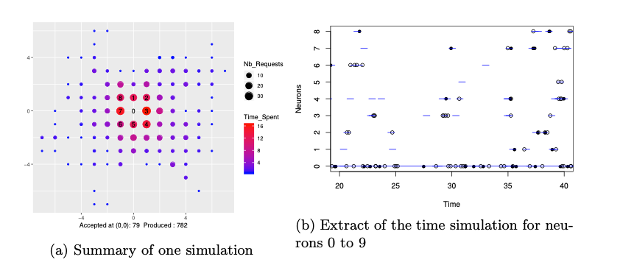Next talk
Date: Tuesday, April 7th 2026 (15:30-16:30, room A709)
Speaker: (Université Paris Cité)
Title: A PDE approach for some theoretical problems in population dynamics
Abstract: We consider integrodifferential equations for populations which are structured with respect to a quantitative trait, and which takes into account the phenomena of selection, mutations, and competition between individuals. We explain the richness of the associated dynamics, and the variety of large time behaviors of the solutions. We also present some interpretations in population dynamics and evolution theory. The presentation is mainly based on works in collaboration with Angel Calsina, Silvia Cuadrado, Pierre-Emmanuel Jabin, Stéphane Mischler and Gaël Raoul.
